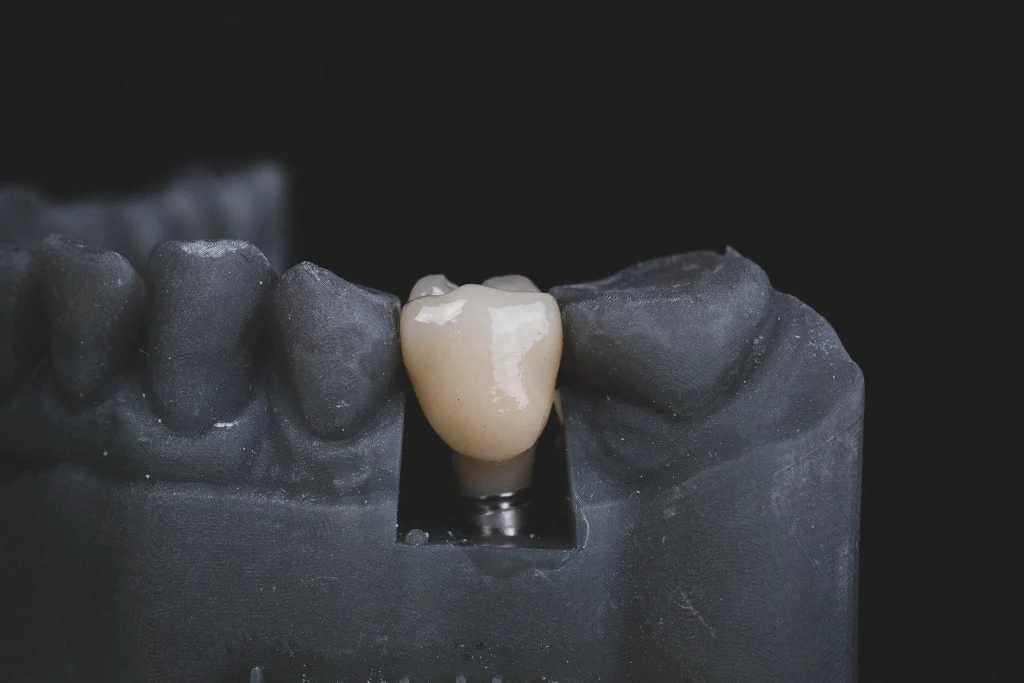When an individual loses single or many teeth, they often choose to replace the natural teeth with a dental implant. Dental implants help to replace missing teeth with artificial teeth that are as strong as natural teeth. It consists of a metal post inserted into your jawbone which acts like a tooth root. These implants restore the ability to chew and speak and improve appearance. Similarly, dental implant protect the bone in your jaw and facial structure and is as a natural tooth. The cost of a dental implant in Nepal varies depending on various factors such as the type of implant, the dentist’s experience and the location of the clinic. The cost of a dental implant starts at NPR 1,00,000 to NPR 1,50,000 .
Options for dental implants procedures
The different options for dental implants procedures are as follows:
Single dental implant: This type of implant is used to replace a exclusive missing tooth. It requires one post and one crown. So if you have one missing tooth then a single dental implant will be the best option for you.
Implant-supported bridge: When you have multiple missing teeth adjacent to each other, you can choose an implant-supported bridge. It also helps to securely replace multiple missing teeth in a row without replacing each tooth.
Implant-supported dentures: when you have many missing teeth, you can choose implant-supported dentures. They clip directly onto a post that is attached to your implants in the jawbone. You can remove them yourself to clean and care for them.
Ridge modification: It builds up bone in your jaw. It involves peeling back the gums and adding a bone substitute. It helps to improve the jaw’s appearance and increase the chances of successful dental implants.
Sinus lift surgery: It allows the upper back jaw to hold a dental implant securely. It helps to raise the sinus floor and develop bone for the placement of dental implants.
Do dental implants appropriate for everyone?
No, dental implants may not be appropriate for everyone. Some factors that can affect the suitability of dental implants are as follows:
Overall health: An individual with conditions such as diabetes, osteoporosis, and immune system disorders can affect healing and increase the risk of implant failure.
Dental hygiene: An individual with poor dental hygiene can lead to infection and implant failure.
Smoking: An individual with a smoking habit can reduce blood flow to the jaw, slowing healing and increasing the risk of implant failure.
Unbalanced bite: If you have a bite that is not balanced or a jaw joint problem then these problems need to be addressed before getting implants.
Age: Children’s jawbones are still growing and the elderly may have more difficulty healing from surgery.
Here, an individual can be a candidate for a dental implant if;
An individual with good overall health and dental health.
An individual with healthy gum tissues that are free of periodontal disease.
An individual with an adequate bone in the jaw to support the dental implant.
How long does a dental implant procedure take?
The length of a dental implant procedure can vary depending on several factors such as the number of implants being placed, the complexity of the case, and the type of procedure being performed. On average, a single-tooth implant procedure can take from 1 to 2 hours while implant-supported dentures (full-mouth dental implants) can take several hours over the course of multiple appointments. However, each case is unique and the actual time of the procedure may differ. So, it is best to consult with your dentist for a more accurate estimation and time.
How painful are dental implants?
The level of pain associated with dental implants can differ from person to person and depend on several factors such as complexity of the procedure, the patient’s pain tolerance and the method of sedation or anaesthesia.
Some patients may experience mild or moderate discomfort during and after the procedure. They can be guide with over-the-counter pain medications. Others may experience more pain or swelling, especially if multiple implants are being done at once or if bone grafting is required. Sedation or local anaesthesia may be used to minimize discomfort during the procedure.
As dental implant treatment is to provide a comfortable and effective solution for missing teeth. So, an individual should be known that any initial discomfort is well worth for long-term benefits of dental implants.

